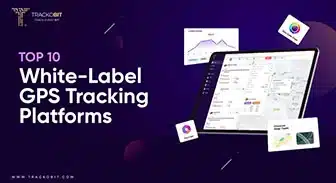-
TrackoBit
Manage commercial vehicles with the new-age Fleet Management Software
TrackoBit -
TrackoField
Streamline your scattered workforce with Field Force Management Software
TrackoField -
Features Resources
-
Blog
Carefully curated articles to update you on industrial trends. -
White Paper
Insightful papers and analysis on essential subject matters. -
Glossary
Explore an alphabetical list of relevant industry terms. -
What’s New
Get TrackoBit & TrackoField monthly updates here. -
Case Study
Explore the cases we solved with our diverse solutions. -
Comparisons
Compare platforms, features, and pricing to find your best fit.
-
About Us
Get to know TrackoBit: our team, ethos, values, and vision. -
Careers
Join the most dynamic cult of coders, creatives and changemakers. -
Tech Support
Learn about our technical support team and services in detail. -
Events
Check out the exhibitions where we left our marks and conquered. -
Contact Us
Connect with us and let us know how we can be of service.
12 Benefits of Using Delivery Management & Tracking Software
- Author:Tithi Agarwal
- Read Time:10 min
- Published:
- Last Update: December 9, 2025
Table of Contents
ToggleHere are 12 compelling benefits of adopting delivery management and tracking software. The software efficiently elevates last-mile delivery operations and ensure visibility across the process, flexibility and cost reduction.
Table of Contents
Toggle
If you are in the delivery business, you know how important it is for businesses to ensure that orders reach customers on time. Most importantly, dispatchers or managers must ensure the delivery operation runs as smoothly as possible. Delivery management software is designed to help with this.
The software with its range of features such as automated dispatching and scheduling, and route optimisation, makes it easy to plan and fulfill efficient and on-time deliveries. It makes it easy to fulfil multiple, urgent orders in the shortest TAT.
So, if you don’t have delivery management and tracking software, here are 11 compelling reasons to invest in one!
What is Delivery Management Software?
Businesses of all sizes are constantly trying to improve their delivery processes. The goal is to achieve successful delivery at lower costs and with fewer fleets and riders on the road.
The delivery management system is the solution that helps companies achieve this. The system helps the delivery process manage, plan, execute, and optimise. It’s a Cloud-based, centralised platform that helps sync the order requests with the right resources. It ensures real-time communication among all the dispatching teams and the delivery stakeholders, which leads to enhanced supply chain visibility.
The software ensures effective delivery operations through its range of features such as:
- Dispatcher tool
- Carrier management module
- Route optimisation
- Rider app
- Rider roster
- Real time tracking
- POD and ETA sharing
- Analytical reports and insights
Benefits of Delivery Management Software
Using a delivery management system has multiple benefits. It helps with on-time delivery and ensures successful deliveries.
1. Level-up Delivery Operations with the Software
One of the prime benefits of using a delivery management system is enhanced operational efficiency. The system streamlines and automates multiple aspects of the delivery process, such as order allocation, route planning, dispatch management, and real-time tracking.
This results in virtually no errors, reducing the time otherwise taken to rectify them. Features like route optimisation greatly reduce delivery time and fuel costs, and related costs. Also, by helping find the most time-efficient routes, let riders deliver the maximum number of orders. Moreover, the system keeps the managers informed of the operational progress through real-time tracking, allowing them to take action quickly in the run-time.
2. Cost Reduction and Resource Optimisation
The last mile is undoubtedly the most expensive leg of the entire supply chain logistics. According to last-mile statistics, last-mile delivery accounts for 53% of the total cost of shipping. Delivery tracking software somehow reduces the cost as it mitigates the chances of errors and associated costs.
Businesses can reduce fuel consumption, unnecessary rerouting, and labour costs by leveraging advanced algorithms for route optimisation and real-time tracking features. Its ability to plan and consolidate deliveries successfully reduces the number of vehicles on the road, thus, cutting down on overhead expenses.
The carrier capacity management and dispatcher tool features embedded in the delivery management system ensure maximum utilization of available resources. By ensuring minimum vehicles on the road, the system effectively reduces operational expenses and makes operations more environmentally friendly and sustainable.
3. Deliver Faster with Route Optimisation
Making deliveries faster frees up your drivers to deliver more orders. To do that, it’s a must for delivery agents to take the shortest and fastest route that could cut their travelling miles. A delivery management system streamlines the route planning and driver allocation process, as algorithms take over the headache of working them out for yourself.
You don’t need to spend precious hours manually calculating each route. Using TrackoMile’s route optimisation feature, you can upload your list of delivery addresses.
Within a few minutes, the system will share the orders amongst your driving team and even calculate the fastest route for each delivery driver to take while giving dispatchers an overview of the whole delivery process.
The software then shares optimized driving directions with the relevant driver via the rider app. The riders will reach each stop as quickly as possible using the most efficient route, preventing them from covering extra miles, taking wrong routes or getting lost.
TrackoMile’s delivery management software lets dispatchers and drivers easily add or delete stops and recalculate the fastest route within seconds if there’s a sudden schedule change.
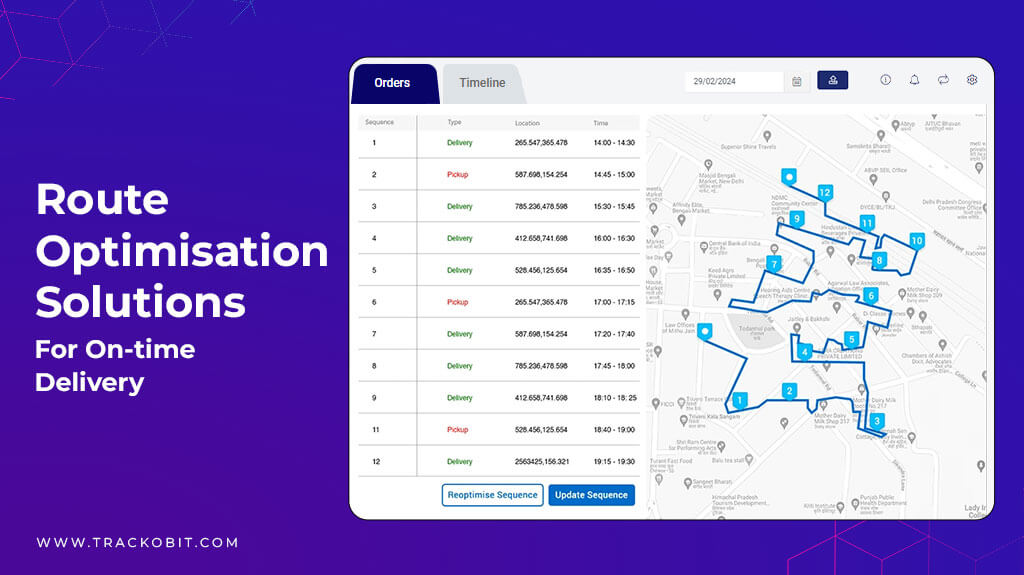
4. Seamless Rider Management through Rider Roster and App
As rider teams grow, it gets tough for dispatchers or managers to effortlessly manage and monitor each one of them. Calling drivers or asking them to periodically check-in with dispatchers while they’re out on a delivery route is time-consuming and can lead to delivery delays.
Designed with riders’ woes in mind, TrackoMile’s rider roaster solution makes it simple to add or remove drivers from the system. You can effortlessly maintain a record of your drivers’ names, vehicles allotted to them, and all necessary contact details.
Additionally, TrackoMile’s rider app, which is easy to install on delivery drivers’ phones, helps them effortlessly communicate with the dispatching team or their managers. It even records and shares their current movements or routes with dispatchers or last-mile managers.
5. Manage Festive Seasonal Fluctuating Demands with Smart Carrier Management
Festive periods such as Easter, Christmas, or Valentine’s Day can lead to surges in orders that your business might not be able to deliver unless you have a robust delivery system that can keep up with demand.
The delivery management system solutions let you rationally divide the workload within the available delivery team and vehicles to keep up with higher demand at peak times.
| Use Case of How Cadbury Managed its Valentine’s Day Demand
Cadbury saw a surge in orders for its chocolates during Valentine’s Day. It used a dispatch management solution to optimise routes, optimally balance workload within the team, and ensure the fastest delivery time without any lapses. Also, Cadbury witnessed fewer delivery frauds due to electronic proof of delivery, which includes a photo of the package or e-signature and sending customers live tracking updates. Making it the software ideal for the busiest periods. |
6. Improved Customer Satisfaction with Automated Notification
“Customer is King” for businesses, especially in the last mile, as it bridges consumers and brands, retailers, or manufacturers. Smooth last-mile delivery experiences guarantee consumer satisfaction and retention.
| Did You Know!
More than two-thirds of consumers expect complete visibilit of their order. |
Delivery management systems play a vital role in enhancing this prime factor—customer satisfaction—by providing wide real-time visibility throughout the delivery process. Features such as accurate tracking, ETA sharing, and an open communication channel keep consumers engaged, thereby managing their expectations expertly.
Furthermore, the capacity to fulfil urgent requests or special delivery preferences enhances a great customer experience. Customers who are happy with a company are more likely to use it again and recommend it to others, which builds enduring relationships and brand loyalty.
7. Data-driven Insights and Analytics for Improved Performance
Another important advantage of delivery management software is that it draws abundant data-driven insights and analytics. The system collects and evaluates various indicators, including customer feedback, driver performance, and delivery times, to generate insightful data that helps businesses make decisions.
These insights enable the identification of operational bottlenecks, continuously optimising the delivery process, and implementing strategies to improve efficiency and service quality further. Thanks to this data-driven approach, businesses can adjust and change in response to shifting consumer tastes and market demands, giving them a competitive advantage.
8. Proactive Handling of Issues with Enhanced Visibility
Another significant benefit of delivery management software is real-time tracking and visibility. With this software, businesses gain complete visibility into the status and location of each delivery. Real-time tracking allows companies to monitor deliveries as they happen, providing accurate and up-to-date information.
This level of visibility enables businesses to proactively address any delays or issues that may arise, ensuring timely and efficient deliveries. Overall, real-time tracking and visibility empower businesses to maintain control over their delivery operations and deliver exceptional customer service.
9. Centralises Supply Chain Activities on a Single Platform
A delivery management system provides a centralised platform that seamlessly integrates with other software solutions, enabling smooth interoperability across the logistics ecosystem. It can connect with third-party applications such as ERP, CRM, and e-commerce platforms through APIs and robust integration capabilities. This easy integration allows for the real-time exchange of crucial data, facilitating efficient order dispatching, tracking and customer communication.
By harmonising delivery management software systems, businesses can achieve greater automation, reduce manual errors, and enhance overall operational efficiency within their delivery processes.
10. Competitive Advanatage
Utilising delivery management and tracking software gives businesses a significant competitive advantage in several key areas. It enhances operational efficiency by optimising delivery routes, reducing fuel costs, and minimising delivery times. This efficiency translates to cost savings and improved customer satisfaction through faster and more reliable deliveries. Moreover, real-time tracking capabilities enable businesses to provide customers with accurate updates on their delivery status, enhancing transparency and trust.
Additionally, the data analytics features of such software offer valuable insights into delivery performance, customer preferences, and operational bottlenecks, empowering businesses to make informed decisions and continuously improve their delivery processes.
Furthermore, integrating with other software systems streamlines operations and facilitates seamless communication across departments. All in all, leveraging delivery and tracking software improves operational effectiveness and strengthens customer loyalty, positioning businesses ahead of competitors in today’s competitive market landscape.
11. Reduced Number of Failed Deliveries
Needless to say, failed deliveries and Return to Origin (RTO) are the two most common problems brands face. Data from Statista shows that a brand can lose $17.2 in each failed delivery.
A delivery management solution reduces failed or second-attempt deliveries with efficient route planning while considering factors like traffic and delivery windows, ensuring efficient routes and minimising delays. Real-time tracking allows for proactive communication between drivers, customers, and managers, enabling timely updates and addressing any issues promptly. Automated notifications inform customers about their delivery status, reducing uncertainty and missed deliveries.
A delivery management solution that integrates these features streamlines the entire process, enhancing efficiency and reducing failed deliveries or the need for second attempts.
Read Blog: How to Choose the Right Delivery Management Software?
12. Return Management
Automating the delivery process through delivery management software can also enhance businesses’ return management processes. This is especially important for e-commerce businesses, where refunds are common.
Delivery management software can manage customer returns, including tracking the return shipment and updating the client on its progress. A smooth return process can increase customer satisfaction and reduce the likelihood of lost items.
With a capable return management system, businesses can track the return package, automate the refund or exchange process, and automatically contact customers about the status of their returns.
Conclusion
Businesses work extra hard to improve their delivery performance and gain customer satisfaction. With the assistance of delivery management software, things can get much easier and help companies get closer to their goals. As mentioned, the software has a hoard of benefits associated with it. With an easy-to-use solution, organisations can map out delivery schedules, track and manage deliveries in real time, and collect and analyse data.
TrackoMile is a top-notch automated delivery management software that puts all your needs and goals on top. It is equipped with all the solutions to make their delivery operations seamless such as route optimation, automated order and rider pairing, real time tracking, carrier allocation and more.
Frequently Asked Questions
-
What Is Delivery Management?
Delivery management is the process of efficiently and timely shipping orders from the seller to the end customers. It involves tasks like route optimization, carrier allocation, order and rider tracking, etc.
-
Do Small Businesses Need Delivery Management Software?
It doesn’t matter whether you are a small business or an enterprise business; your no.1 goal must be to provide your customers with the best shopping experience. Only then you will be able to retain customers and boost your word-of-mouth marketing. Thus, delivery management software is a must.
-
What Is The Top Delivery Management Software In The Market?
You have thousands of options when searching for the best delivery management software. However, TrackoMile tops the list because of its flexibility and scalability. The software has all the needed solutions, such as route optimization, real-time tracking, rider roster and app, and more, to assist dispatchers in ensuring smooth delivery and tracking of orders.
Tithi Agarwal is an established content marketing specialist with years of experience in Telematics and the SaaS domain. With a strong background in literature and industrial expertise in technical wr... Read More
Related Blogs
-
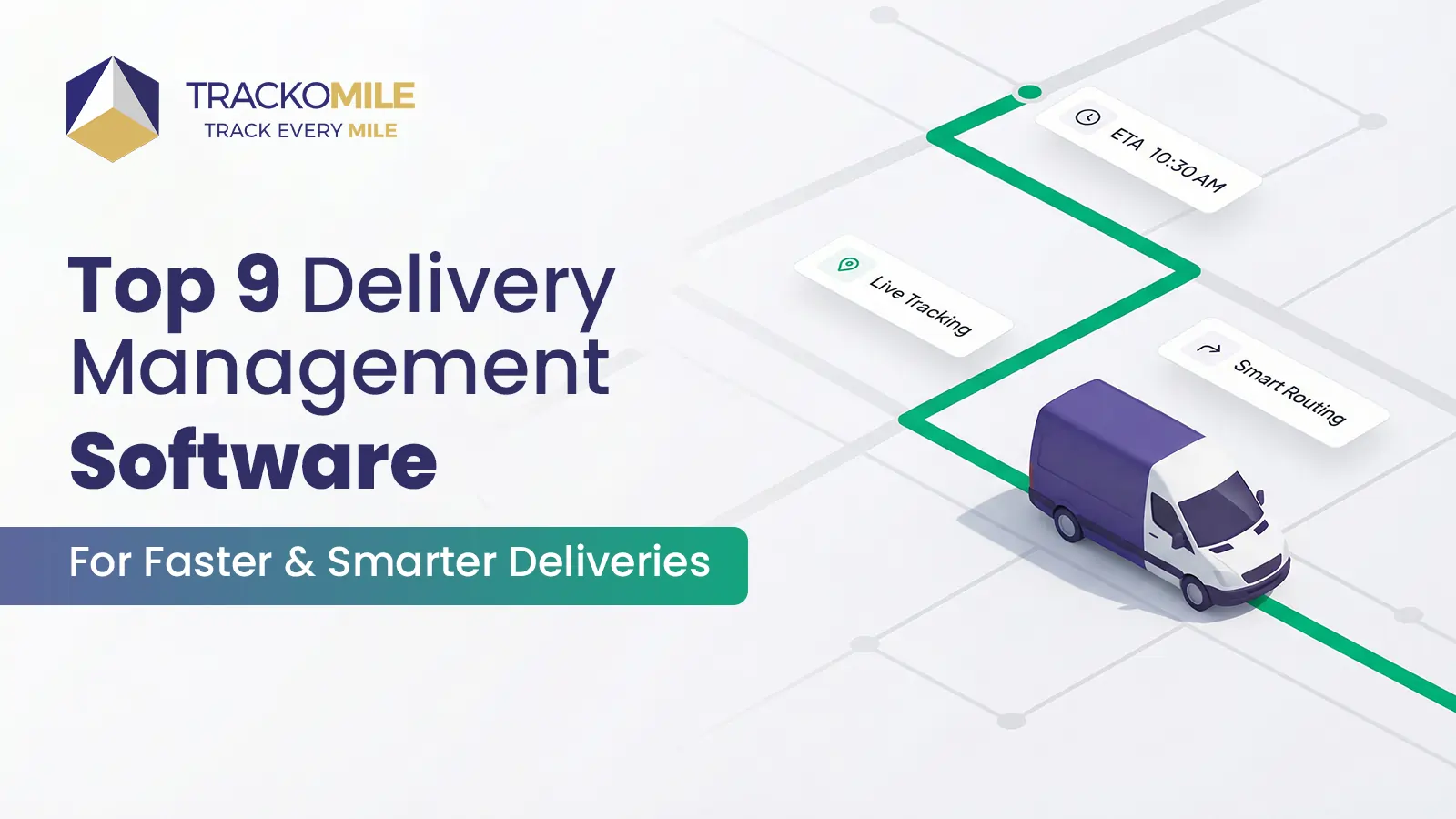
Top 9 Delivery Management Software in 2026
Tithi Agarwal February 2, 2026By choosing the best delivery management software, companies can benefit from features like route optimization, dispatch management, and more. This…
-
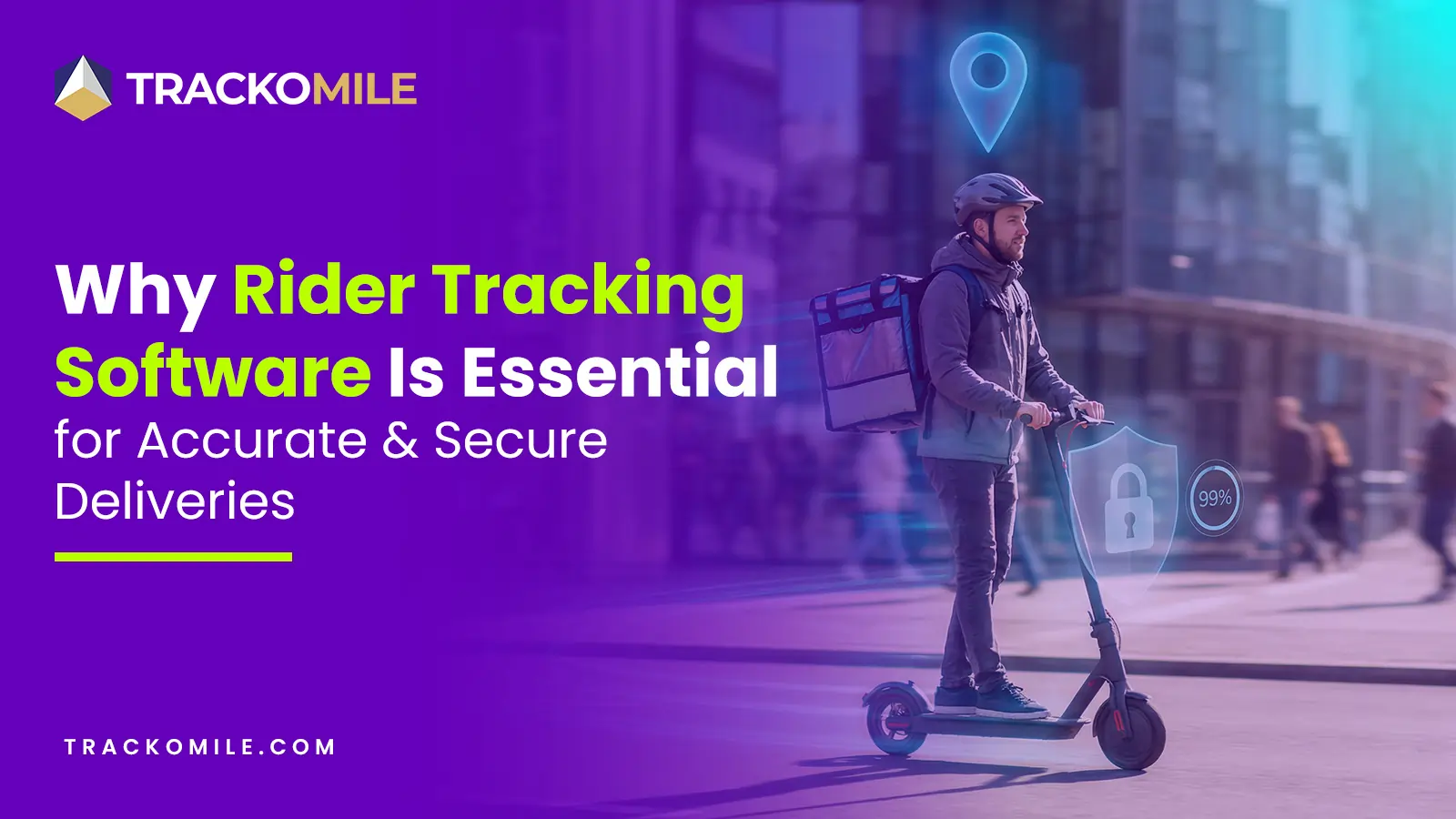
How Rider Tracking Software Improves Delivery Accuracy and Reduces Fraud
Tithi Agarwal December 8, 2025Rider tracking software improves delivery accuracy with real-time GPS visibility and automated ePOD. It also enables route optimisation and fraud…
-
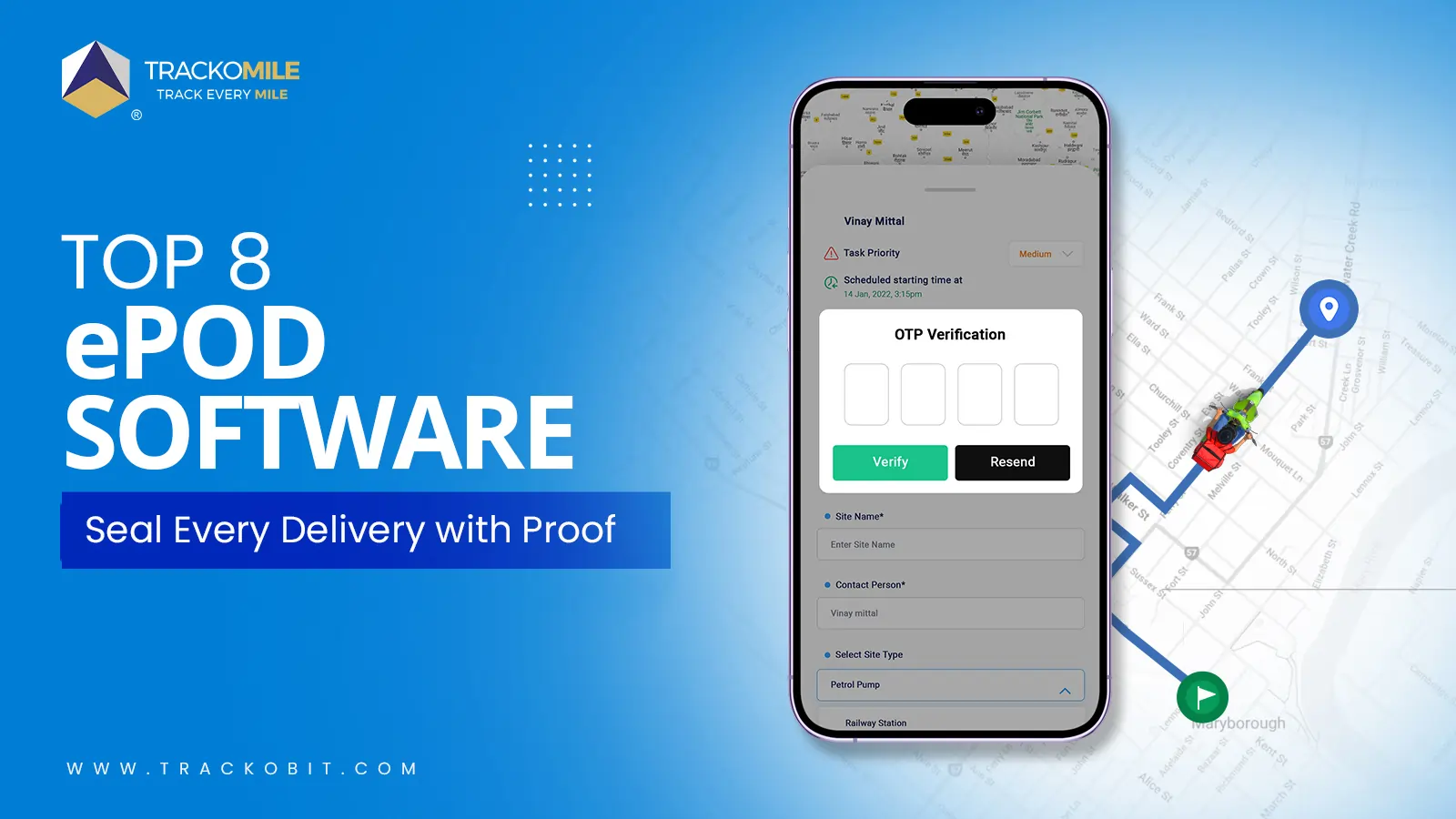
Top Electronic Proof of Delivery (ePOD) Software in 2026
Tithi Agarwal September 25, 2025Electronic proof of delivery has become the backbone of modern logistics. Explore the top 8 ePOD software in 2026 and…
-
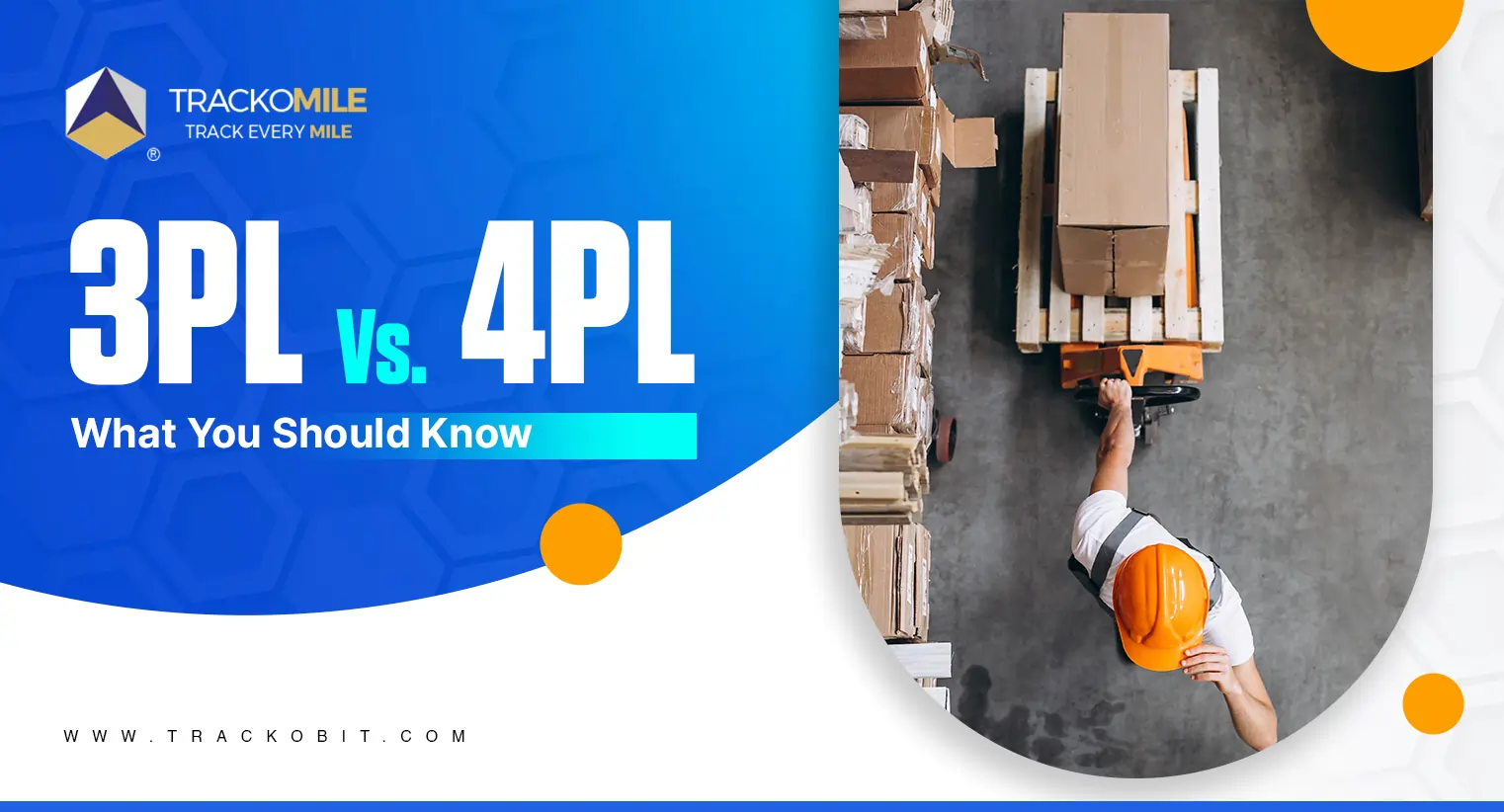
3PL vs. 4PL: Which is Best for Your Business?
Tithi Agarwal September 25, 2024Confused about choosing between 3PL and 4PL for your retail supply chain? Read this blog to find out which is…

Subscribe for weekly tips to supercharge your last-mile delivery.
Your inbox awaits a welcome email. Stay tuned for the latest blog updates & expert insights.
"While you're here, dive into some more reads or grab quick bites from our social platforms!"Stay Updated on tech, telematics and mobility. Don't miss out on the latest in the industry.
We use cookies to enhance and personalize your browsing experience. By continuing to use our website, you agree to our Privacy Policy.



































